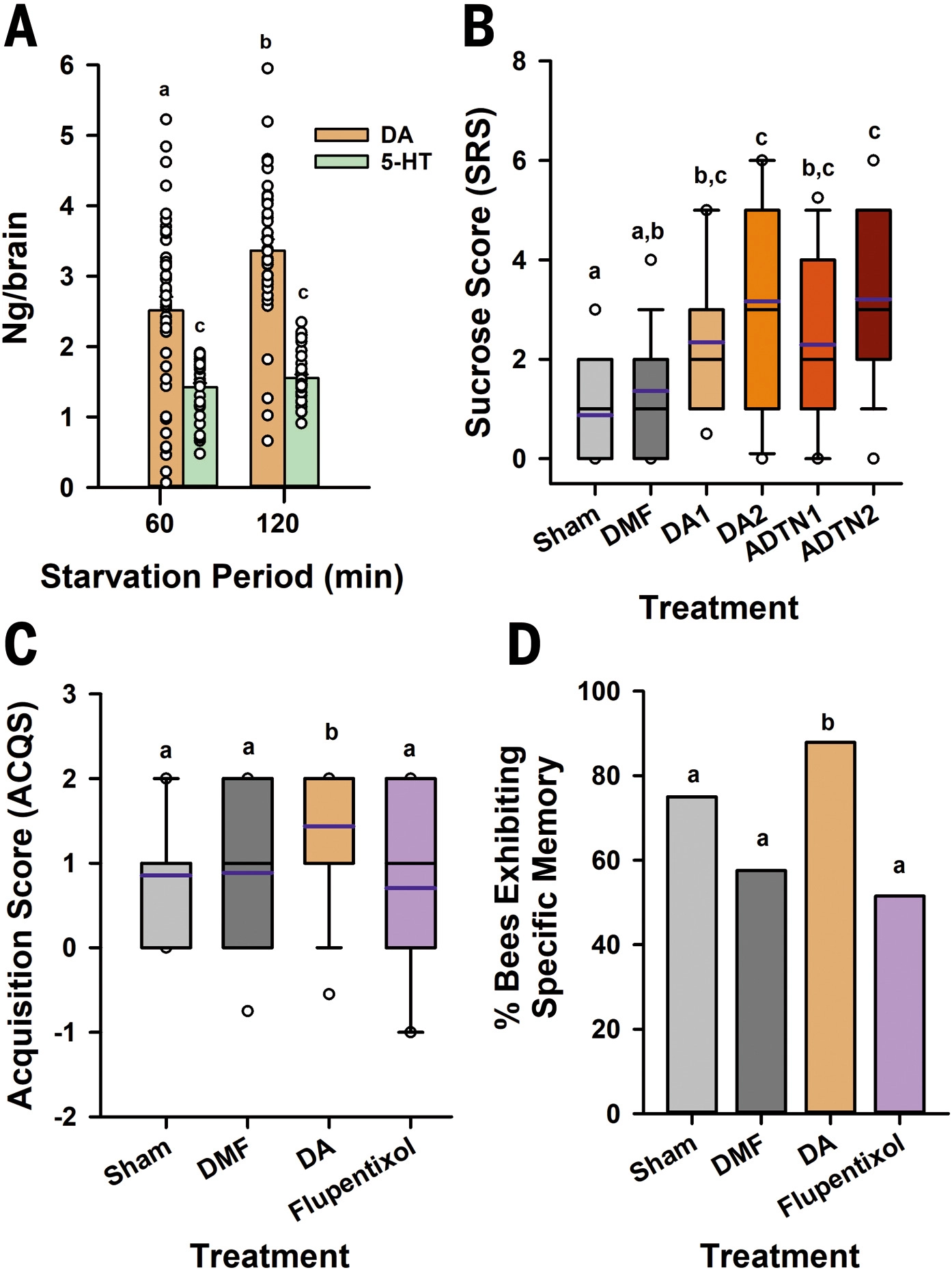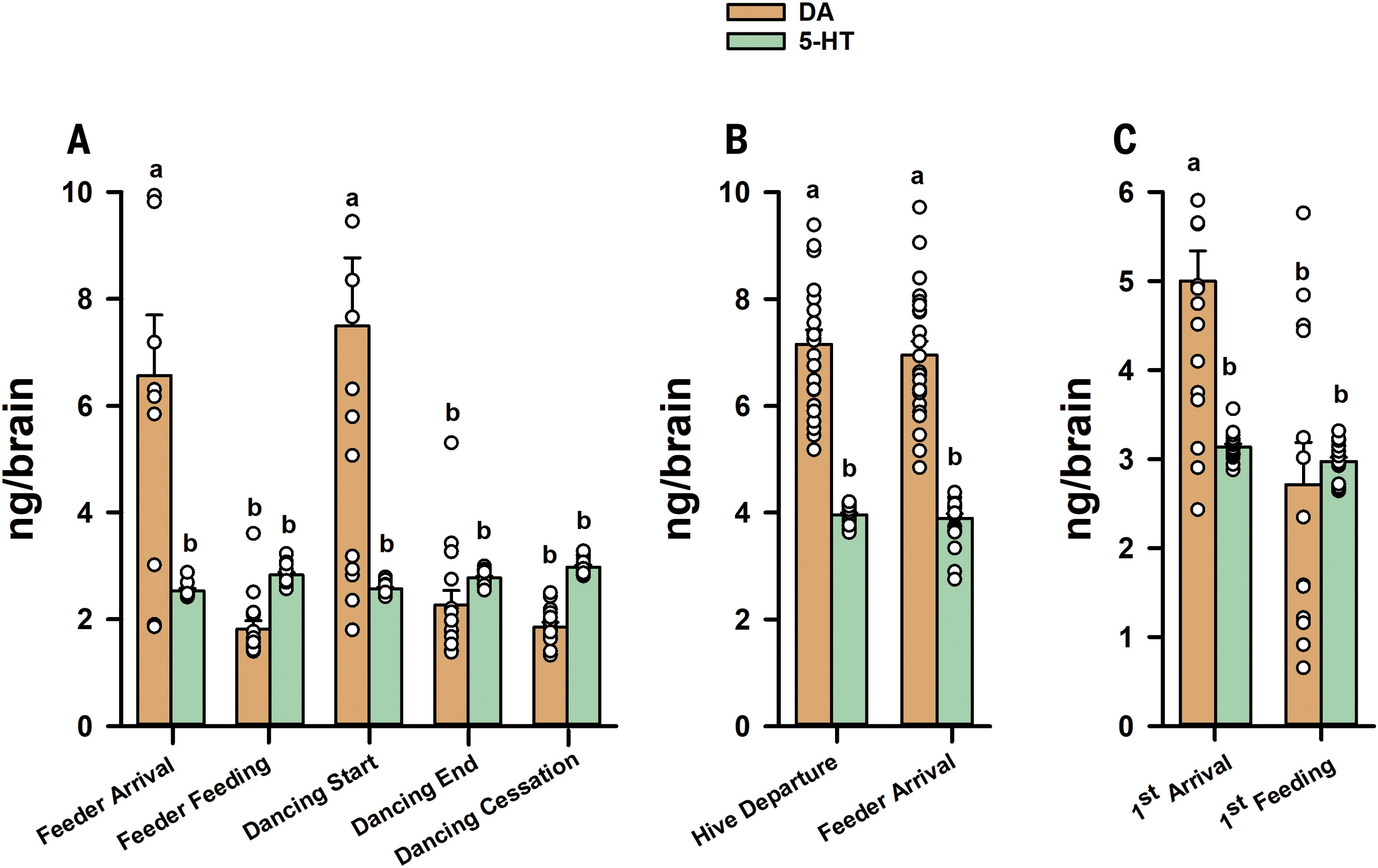It was learned from Fujian agriculture and Forestry University that recently, led by the research team of Su Songkun of the University and in conjunction with scientists from France, Australia and other countries, the latest research results entitled "the dopamine signal activated instantaneously in the brain of bees regulates food desire" were published in the international top academic journal science. This study found and confirmed for the first time that dopamine in bee brain regulates food desire, and revealed that bees (insects) have a dopamine regulated food desire system similar to mammals.
Honeybee is an important global economic animal and a model organism for studying social behavior and health. Food is very important for the survival and reproduction of bee individuals and groups. Honeybee worker bees go out of the nest to collect food to meet the food needs of individuals and groups. After collecting food and returning to the nest, honeybees tell their companions the direction and distance of food sources through "dance language", and recruit honeybees from the same nest to go out of the nest for collection, so as to improve the collection efficiency and meet the food needs of honeybees. The study of "dance language" and its formation mechanism after bee feeding is an important window and frontier field to explore bee social behavior.


It is understood that in mammals, the production of desire is regulated by the dopamine neural pathway at the edge of the midbrain. Although invertebrates exhibit complex food search behavior, it is still unknown whether there is a desire system similar to mammals that drives food search. Bees have intensive collection activities, developed social organizations and tail wagging dance that transmits good information on the direction and distance of food sources. Therefore, they are ideal creatures to study the relationship between brain dopamine pathway and food desire.
According to reports, Su Songkun's team of researchers monitored the collection and dancing behavior of the collection bees, and detected and interfered with the brain biogenic amine signals of the collection bees at the key stages of the collection and information exchange cycle. The results showed that the level of dopamine in the brain of collecting bees increased significantly in the initial stage of dancing and the stage of leaving the nest to a good food source; The food gathering activity of honeybees was inhibited by dopamine antagonists, and the desire to collect decreased; Individual starvation will increase the dopamine level in the brain of collecting bees, and then improve their appetite related odor learning ability and memory ability.
Relevant experts said that this research achievement has provided innovative and important scientific evidence for the comparative evolution of the basic physiological needs "food desire" of higher animals and even humans; It provides a new idea for the molecular basic research related to bee collection traits and the cultivation of excellent bee species; It also provides a new biological model for the study of human dopamine related physiological, psychological, learning and memory disorders.

